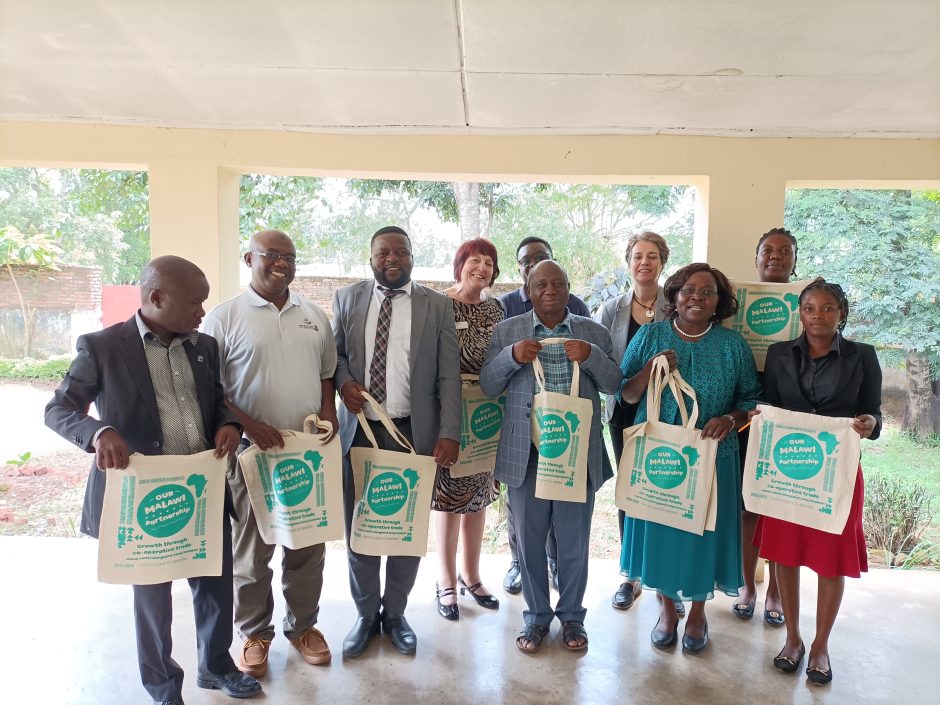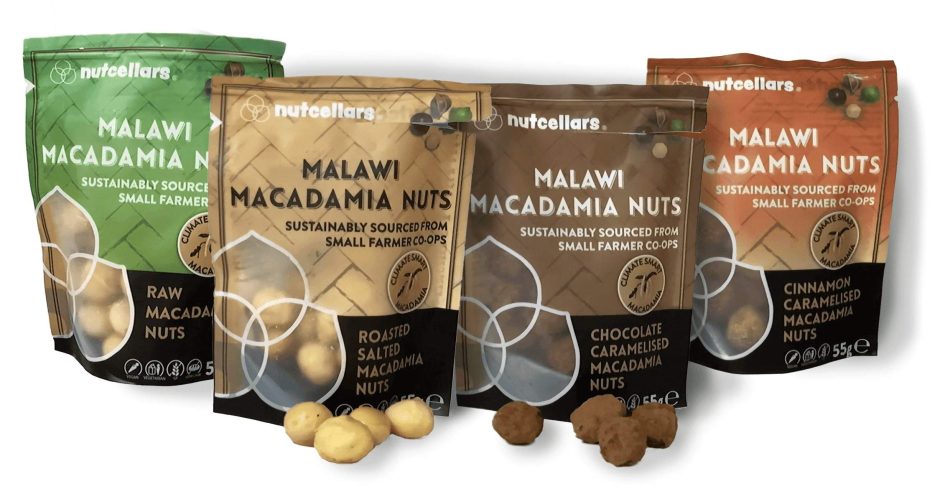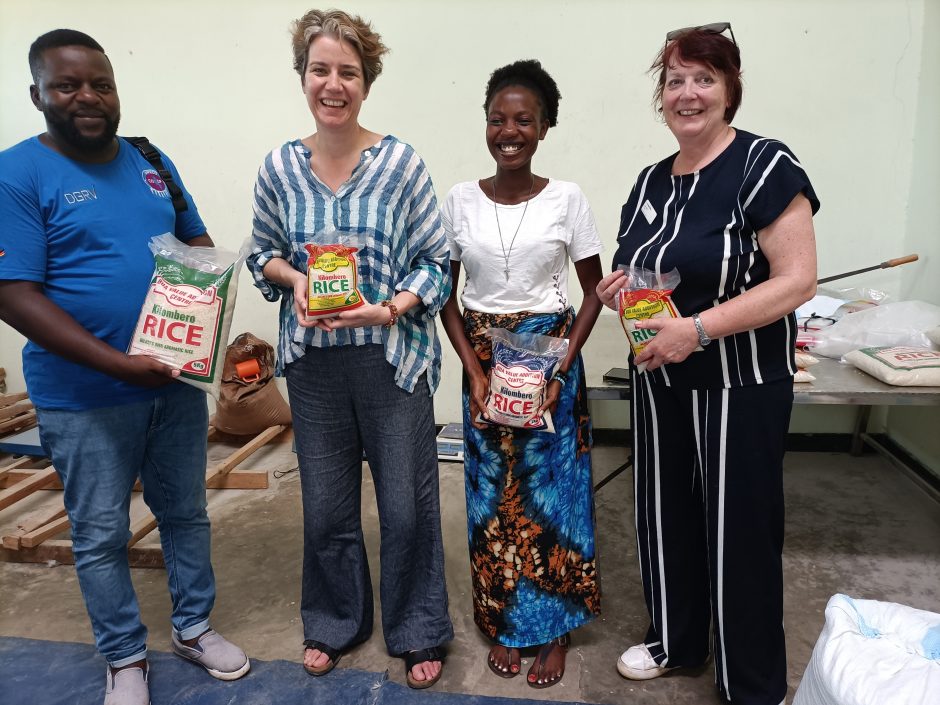Last year Central Co-op launched Our Malawi Partnership, an initiative to support farmers and producers in Malawi by improving livelihoods and helping to strengthen their trading capacity. One of the poorest countries in the world, Malawi is the first to benefit from Central Co-op’s Co-operative International Trading Development Fund, under which a proportion of sales is put aside every time customers spend on Co-op Fairtrade products. Since launching its Malawi Partnership in July 2022, Central has sold over 147,000 eligible products, amassing almost £200,000.
The programme is run with the help of Co-op College and the Malawi Federation of Co-operatives (Mafeco), which are working to help transform the trading capacity of farmers in Malawi.
“It’s not charity, it’s a co-op trading initiative,” Central Co-op CEO Debbie Robinson told delegates attending the Co-op Congress in Manchester. She explained how Central Co-op’s International Trading Development Fund goes “way beyond fair-trade principles”.

“If Central could achieve so much in just a short period of time, imagine what could be achieved if all co-ops joined in,” she added.
It was Robinson who in 2022 first brought the proposal for a partnership with Malawi to Central Co-op’s board of directors, who agreed to support the initiative.
“Reading about it in a board paper and experiencing it is something completely different,” says Central board member and former society president Jane Avery, who recently visited Malawi.
“The benefits of this business partnership are reciprocal. By getting quality products into our stores we are giving our members choice – and by telling the stories of the farmers, we are making that choice about quality, price and ethical values.”
Central Co-op stores sell a range of products linked to Malawi, including the Revolver co-op range, which sources coffee from Mzuzu Coffee Planters Union and teas from the Msuwadzi Small Farmers Association. Other products include macadamia nuts from Nutcellars, peanuts and cashews from Liberation foods, and Kilombero Rice from Just Trading Scotland.

While in Malawi, Avery joined the Co-op College’s head of international partnerships, Dr Sarah Alldred, on a series of visits to the co-ops supported by the partnership.
They started their tour with a visit to Mafeco offices where they met with the local team members, including John Mulangeni, executive director, and Jeruzye Munthali, project manager.
“John provided a brief history of the co-operative movement in Malawi and updated us on the current review of co-op law taking place. This will lead to the imminent publication of a new co-operative policy which will act as guidance to a new Co-operative Act looking at simplifying registration, membership, auditing and taxation laws,” says Alldred.
“Later, we travelled to the Ministry of Trade and Industry, where we met the principal secretary of co-operatives, Francis Enock Zhuwao, and the deputy registrar of co-ops, Henry Mandere. This was an incredibly productive meeting where we agreed to develop a formal memorandum of understanding (MOU) between the Ministry and Mafeco, which will help support the sustainability of Mafeco.”
She and Avery also witnessed first-hand some of the challenges farmers face, from climate change and poor access to land, farm inputs, finance, and spiralling transport costs.
On day two of their tour they were shown the land and shrubs of subsistence farmers who belong to the Nalpiri Tea Co-operative, which is a member of the newly formed Mulatho Tea Co-op Union. Some of the challenges farmers face are pricing in the market, a lack of tea seedlings; and the need for a processing plant.
The benefits of forming co-ops include achieving scale, sharing knowledge, joint marketing and long-term exporting. Through Mafaco farmers also receive training on organic fertiliser, draught-resistant crops and governance.
“We spoke to growers about the key challenges they face including pricing in the market, a lack of tea seedlings and the need for a processing plant,” says Alldred.
“Nalipiri and the Ntende Tea Co-operative, also based in the Thylo region, are founding members of the newly formed Mulatho Tea Co-op Union, the first co-op tea union established in Malawi. A brilliant outcome for the first year of the programme.”
Avery adds: “Their tea bushes were sparsely planted, and some had died because of the drought – termites were eating others up. Via the co-operative, and membership of the Mulatho Tea Co-op Union, they were able to harvest, package and market their tea to the larger tea estates.” She explains that the produce is of top quality and organic “not because of a trend, but because organic fertiliser is cheaper and available locally”.
By being members of co-ops, farmers also get to share knowledge and costs, including those related to acquiring fertilisers. With support from the partnership, Mafeco aims to train over 800 farmers on organic fertiliser production.
Another area where support is needed is replacement shrubs that are drought resistant. “The difficulty is that there is little surplus money to invest in re-planting. This is one part of the support we will be giving,” says Avery.
She identified several barriers to development, including a lack of capital to finance large-scale replanting of tea bushes.
“Mafeco plays a vital role in developing co-ops, but, as in other countries, those that will benefit most from the development of co-ops, cannot afford to pay for the support especially as the co-ops get started. Therefore, financial support for Mafeco is imperative to support the growth of the co-operative sector,” she says.
She adds that co-ops are recognised and trusted by the Malawian Government to deliver and turbo-charge change for farmers in Malawi. Mulatho Tea Co-op Union was given a de-forested, barred mountain by the government of Malawi to re-plant it with tea bushes.
On their third day of the tour, Avery and Alldred travelled to the Highlands Macadamia Co-operative (HIMACUL) in Nchisi the two met with HIMACUL director, Ken Mkangala and took the opportunity to explain the ambition of the ‘Our Malawi Partnership’.
“HIMACUL already trades with Liberation Nuts and NutCellars, both of whom sell into Central Co-op stores – so the great news is that you may have sampled their produce already!” says Alldred. “We were also privileged to meet with two inspiring farmers from the Chikwtula Macadamia Co-operative, one of whom gave us a demonstration of macadamia processing.”
On day four of their tour the two stopped by Mzuzu Coffee Co-operative Union where they learnt about its diversification strategy from Jackson D K Ngambi, CEO of Mzuzu Coffee Union. “Made up of six primary co-operatives with a total membership of over 2,600 coffee farmers, Mzuzu Coffee Union lost their Fair Trade status in 2016, due to not being able to pay their members on time, and have struggled since,” says Alldred.
“Mackson gave a great presentation about where Mzuzu is today and was very transparent about the challenges they have recently faced, which include the low price of coffee beans on international markets, the Fair Trade decertification, and meeting international standards of packaging. The ‘Our Malawi Partnership’ aims to help Mzuzu meet its five-year vision, including re-obtaining Fair Trade certification, increasing union membership, and increasing the volume of trade through increased production and quality of coffee.
“A highlight of the day was meeting with growers. We were introduced to mother and son (Minnie Mangochi and Brown Silumbu) who produce coffee as well as bananas, avocados and sugar cane on their family farm.”
The fifth day of the tour was spent at the Bua Rice Co-operative, which, says Avery, was “a highly visible lesson in the power of co-operation”.

“The fields kept by the co-op members had strong, healthy crops – the fields farmed by individuals not in the Co-op (there are alternative Associations farmers can join) were not so healthy or productive. We were shown the factory where rice is graded (by hand), washed and packaged. They could buy machinery to do the grading, but it is expensive. Again, access to finance would address this,” she says.
She thinks co-ops in the UK “have a lot to learn from the smallholder farmers and producers in Malawi” and hopes the latter “can avoid the mistakes of industrialisation with its over-reliance on plastic”.
Bua Rice Co-operative produces Kilombero rice in the spring and summer seasons and aims to investigate rice crop diversification to help the growers stay productive throughout the rest of the year. This will be done with support from the Our Malawi Partnership.
“Many of Bua Rice Co-operative’s ambitions for the next five years involve implementing practical solutions to problems, such as acquiring vehicles to ease transportation of harvests to market, purchasing equipment to improve office automation and farm mechanisation, and improving member livelihoods to allow them to build decent, iron sheet housing” adds Alldred. “The key focus for the ‘Our Malawi Partnership’ will be helping to establish more regional co-operative rice unions throughout the country.”
After Avery, left Alldred spent the remainder of her visit working with Mafeco, reflecting on the project, discussing baseline data, reporting requirements and member journeys.
In terms of what comes next for the partnership, Alldred says the programme will aim to build on the successes of the first year and continue strengthening the key co-operative unions and bridging the trade link with Central Co-operative. Other targets include a pilot integrating tropical bamboo planting across the co-operative unions in partnership with the Climate Change Co-operative based in the UK and creating a ‘community of learning’ between Mafeco and the Co-op College, linked to scholarship opportunities for key stakeholders across Malawi.
Central Co-op and the Co-op College also hope to bring on more UK co-op retail societies to support the work in Malawi through the International Co-op Development Fund.